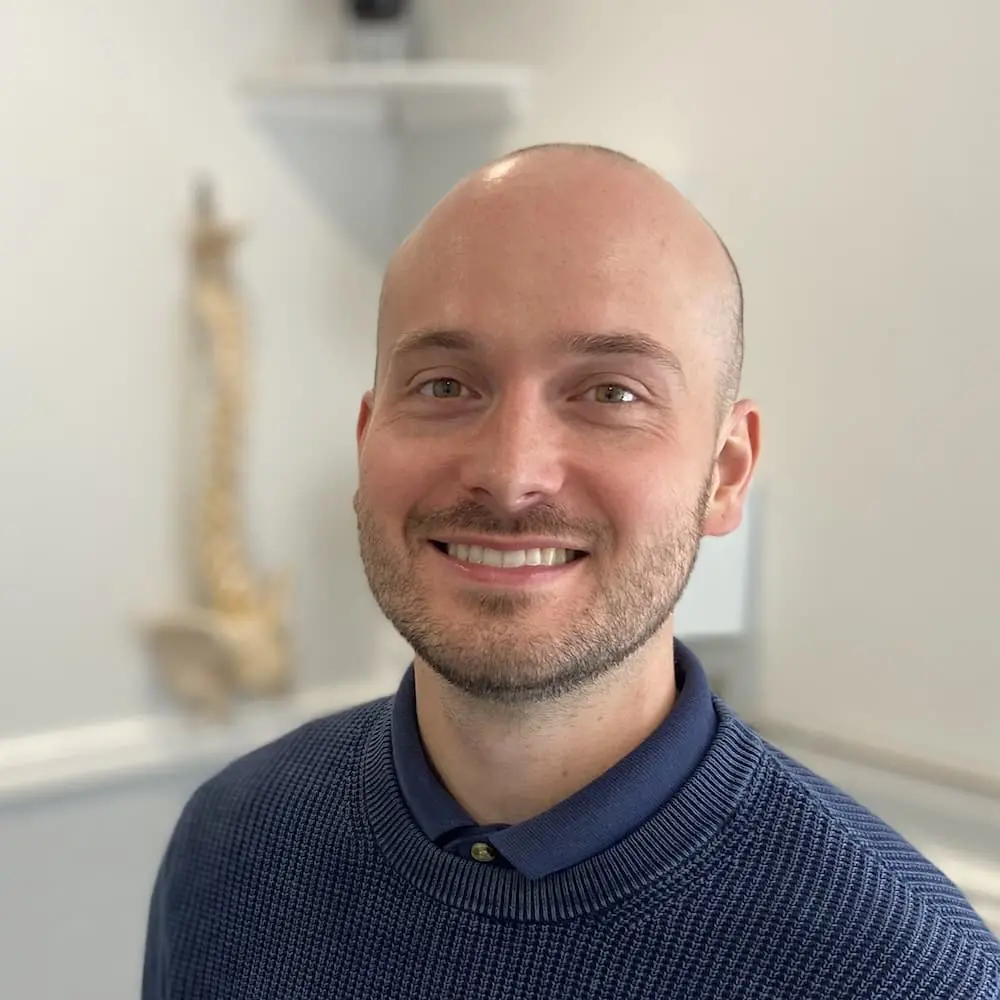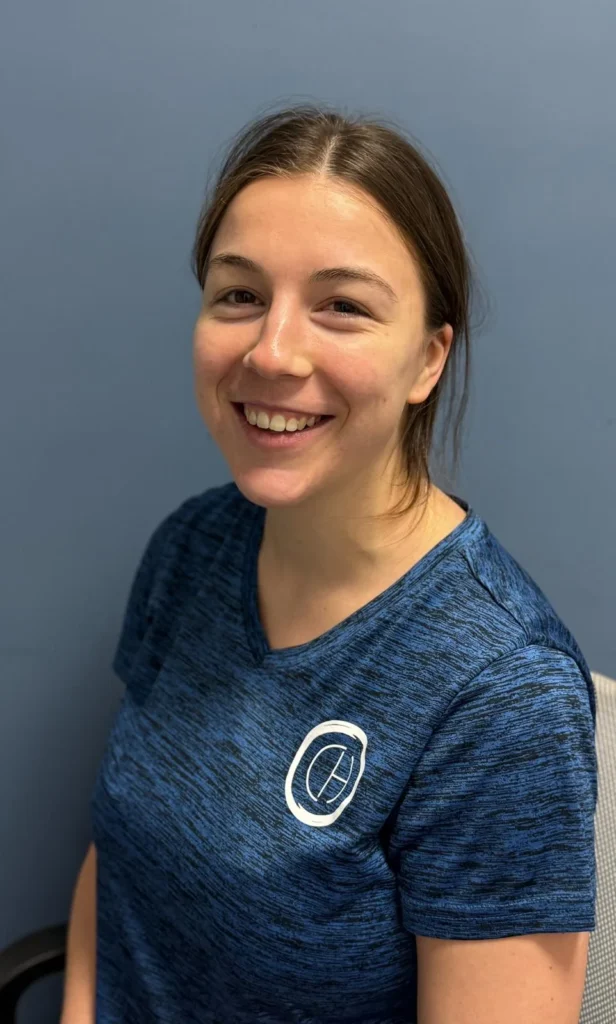Neck Pain
What conditions are associated with neck pain?
Neck pain can be caused by a range of conditions, including:
- Muscle Strain or Tension: Often related to activities like prolonged computer use, reading in bed, or poor posture.
- Cervical Spondylosis: Age-related bone change affecting the spinal vertebrae
- Cervical Herniated Disc: The inner gel-like substance of a spinal disc protrudes through the disc’s outer layer, potentially irritating nearby nerves.
- Whiplash: A neck injury caused by a sudden jerking motion, often as a result of a car accident.
- Cervical Stenosis: Narrowing of the spinal canal in the cervical spine, which can press on the spinal cord.
- Cervical Radiculopathy: Irritation or compression of a nerve root in the cervical spine, leading to pain that radiates down the arm.
- Rheumatoid Arthritis: Inflammatory joint disorder that can affect the neck.
- Meningitis: Inflammation of the thin tissue that surrounds the brain and spinal cord; neck stiffness is a common symptom.
- Infections: Abscesses, spine infections, or tuberculosis can affect the cervical spine.
- Tumors: Rarely, neck pain can be caused by tumors in the spine.
- Fibromyalgia: A chronic condition causing muscle pain throughout the body, including the neck.
- Torticollis (Wry Neck): A condition where the head becomes twisted to one side.
- TMJ Disorders: Problems with the temporomandibular joint can cause referred neck pain.
- Heart Attack: Although more commonly associated with chest pain, pain can radiate to the neck during a heart attack. This is more of an atypical symptom and would usually be accompanied by other symptoms like shortness of breath, sweating, and arm pain.
This is not an exhaustive list, and the cause of neck pain can sometimes be multifactorial. Persistent or severe neck pain should be evaluated by a healthcare professional to determine the underlying cause and appropriate treatment.
What are the symptoms of neck pain?
Symptoms associated with neck pain can vary depending on the underlying cause. Common symptoms and associated manifestations include:
- Localised Pain: Pain concentrated in the neck region, which can be sharp, dull, burning, or aching.
- Radiating Pain: Pain can radiate from the neck to the shoulders, arms, or upper back.
- Stiffness: Limited range of motion, difficulty turning the head side to side or looking up or down.
- Muscle Tightness or Spasms: Involuntary muscle contractions in the neck area.
- Headaches: Often stemming from tension or cervicogenic causes, which originate from the neck.
- Numbness or Tingling: Can occur in the neck, shoulders, arms, or hands, often due to nerve compression.
- Weakness: Muscular weakness in the arms or hands if a nerve root in the neck is affected.
- Difficulty Swallowing: Rare, but can be associated with certain neck conditions.
- Dizziness or Vertigo: Can be related to neck issues, especially when neck pain originates from the upper cervical spine.
- Swelling or Tenderness: Over the affected area of the neck.
- Clicking or Grinding Noises: When moving the neck, especially associated with osteoarthritis.
- Additional Symptoms: If the neck pain is due to conditions like meningitis, symptoms may include fever, headache, photophobia (sensitivity to light), and a rash.
It’s important to note that the presence and intensity of these symptoms can vary based on the individual and the underlying cause of the neck pain. If someone experiences sudden, severe neck pain, pain following an injury, or if the neck pain is accompanied by other concerning symptoms, they should seek medical attention promptly.
What causes neck pain?
Neck pain can be caused by a variety of factors and conditions:
- Muscle Strains: Overuse, or as a result of injuries the muscles around the neck can cause pain.
- Facet Joint changes: Neck joints, like other joints in your body, can change with age. Osteoarthritis can cause the cushions (cartilage) between your bones (vertebrae) to deteriorate. Your body then forms bone spurs that affect joint motion and can in some people, cause pain.
- Nerve Compression: Herniated discs or bone spurs in the vertebrae of your neck can press on the nerves branching out from the spinal cord.
- Injuries: Car accidents can result in a whiplash injury, which occurs when the head is jerked backward and then forward, straining the soft tissues of the neck.
- Stress: Emotional stress and anxiety can lead to muscle tension, contributing to neck pain.
- Spinal Stenosis: The narrowing of the spinal canal in the neck can compress the spinal cord leading to pain.
- Infections: Rare infections like osteomyelitis, discitis, or epidural abscess can affect the neck area.
- Tumors: Spinal tumors, although rare, can cause neck pain.
Not all instances of neck pain require medical intervention. However, if neck pain is severe, persists for several days without relief, is accompanied by other symptoms (like headache, numbness, weakness, or pain radiating to the arms), or if it follows an injury, it’s important to seek medical evaluation.
What is the best treatment for neck pain?
The best treatment for neck pain largely depends on the underlying cause. Here are common treatments for neck pain:
- Modified activity: Limit aggravating activities briefly.
- Pain Relievers: Over-the-counter medications like acetaminophen or ibuprofen.
- Physiotherapy: Targeted exercises and stretches.
- Ice and Heat: For inflammation and muscle relaxation.
- Alternative Therapies: Acupuncture, massage.
- Surgery: In severe cases with nerve compression.
Always consult a professional for personalised advice.
Who should I see to fix neck pain?
For neck pain, consider seeing:
- GP: Initial assessment and general guidance.
- Physiotherapist: Rehabilitation, exercises, and stretches.
- Rheumatologist: If arthritis or autoimmune disorders are suspected.
- Neurologist: For nerve-related issues.
- Pain Management Specialist: Chronic pain treatment.
Is exercise good for neck pain?
Yes, exercise can be beneficial for neck pain. Proper exercises can strengthen neck muscles, improve posture, restore range of motion, and alleviate tension. However, it’s essential to perform exercises correctly and avoid overexertion to prevent further injury. Consulting with a physical therapist for tailored exercises is advisable.
Will I need surgery for neck pain?
Not all neck pain requires surgery. Surgery is typically reserved for cases where there is nerve or spinal cord compression, severe instability, tumours, or certain types of fractures. Most neck pain can be treated with non-surgical methods. Always consult with a medical professional for a thorough evaluation and recommendation.
Chews Health top tip for neck pain
Our Specialists
Posted onTrustindex verifies that the original source of the review is Google. Tennis elbow pain issue resolved in 3 physio - therapy sessions with Richard Saxton. Back to Badminton and Cricket as normal. Many thanksPosted onTrustindex verifies that the original source of the review is Google. I was referred to Chews Health for shockwave therapy for long term IT Band syndrome. Jon Shurr was excellent at talking me the through the process, setting my expectations and listening to my concerns. I just expected to receive the intervention with Jon but what I actually got was a patient-centred, holistic approach to my condition. Jon was excellent at setting physical challenges to test my knee pain and amending approaches when needed. Having completed my course of shock wave therapy I am feeling the improvements and continue to challenge my knees!! I am so pleased with the success of this therapy and am very grateful to Jon.Posted onTrustindex verifies that the original source of the review is Google. Outstanding care and a well-tailored set of stretches and exercises to address my problems and to keep me in shape. Thank you, Jack!Posted onTrustindex verifies that the original source of the review is Google. I have had a great experience here. I went for a knee injury and they’ve helped me so much build my strength back up. I would definitely recommend. The staff are lovely and really care about your improvements and your injury. Very thankful!Posted onTrustindex verifies that the original source of the review is Google. Highly recommended. My Physio (Jack initial assessment and follow up with Fio) completely understood the issue and worked with me to fix the issue. Thanks for you help.Posted onTrustindex verifies that the original source of the review is Google. I would highly recommend Chews Health. I have seen Jon for help with improving muscle strength in my arms and legs. I am in late 70's and presently seeing him every week because of hip pain. The exercises are helping me cope with an ongoing problem. Thank you. DotPosted onTrustindex verifies that the original source of the review is Google. Jack was incredibly helpful in advising on, and treating, my knee injury which was preventing me from training for the Manchester marathon. Jack was able to explain the cause in a really clear way and created a bespoke training and physio plan which enabled me to run the marathon without the level of pain I had been experiencing. Jack has also significantly improved my running form through his advice and the use of the high tech equipment and analysis software available in each session. Thanks to Jack for enabling me to complete the marathon (and enjoy it!) and for continuing to support on my running journey!Posted onTrustindex verifies that the original source of the review is Google. Great service. Jack was honest and straightforward explaining the rationale behind exercises/decisions. Pragmatic approach focused on getting me safely back to sportPosted onTrustindex verifies that the original source of the review is Google. Have waited a few months post-treatment to write a review - just to be certain! Quite simply, I can't recommend these guys highly enough. I went to them with two badly damaged knees (miniscus tears). Having had three arthroscopes over the years, I was completely resigned to needing surgical intervention again. The Chews team had different ideas. After showing me the latest research findings, they assured me my knees could be rehabilitated without a scalpel. I had just a handful of sessions with them and am delighted to report that, six months on, my knees are great! I'm running 5k twice a week (don't laugh, I loathe running and am no spring chicken) without any pain and have taken up tennis. Everyone at Chews is passionate about their subject, knowledgeable, reassuring and friendly. I wouldn't go anywhere else.Posted onTrustindex verifies that the original source of the review is Google. Couldn’t recommend Chews health enough. Jack’s experience and expertise allowed me to identify my problems and gradually build the strength and ability to return to running pain free.Google rating score: 5.0 of 5, based on 116 reviews




